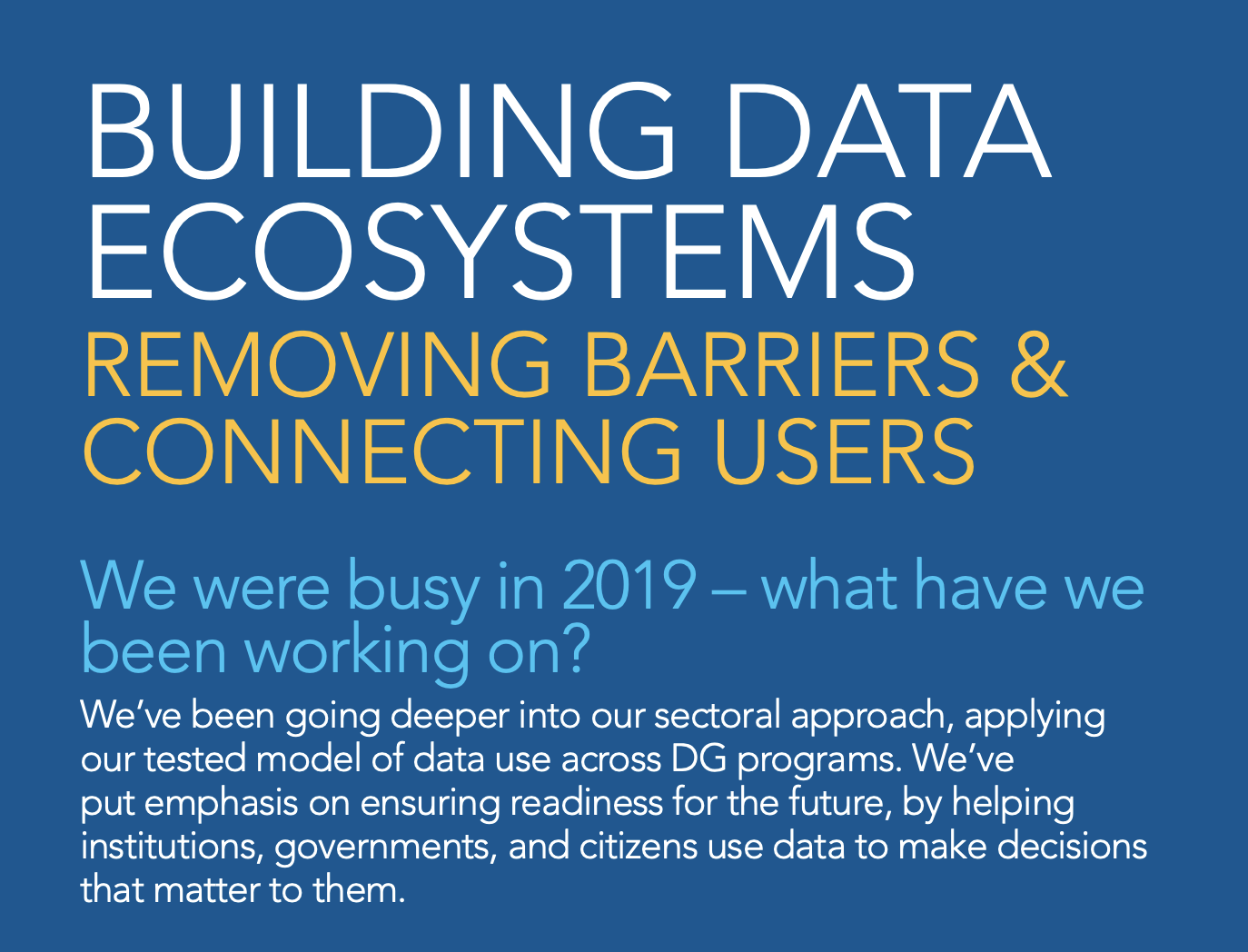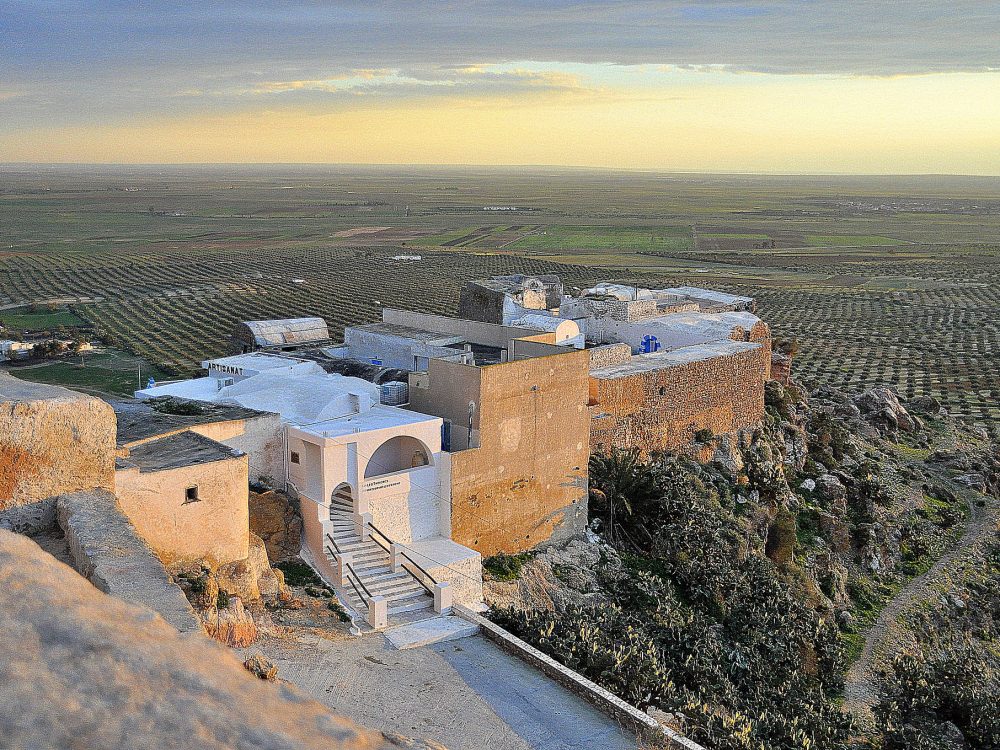Four Highlights from our 2019 Annual Report
Throughout 2019, DG furthered our mission of supporting the use of data, technology, and evidence to create more effective, open, and engaging institutions. We leveraged our 2018-2021 Strategic Vision to deepen work in agriculture, extractives industries data, and inclusive programming.

There’s much more to read in Building Data Ecosystems: Removing Barriers & Connecting Users, but a few of 2019’s milestones that left big impressions:
1. With the Government of Makueni County in Kenya and supported by Hivos, we built the first subnational OC portal in Kenya.
The subnational OC portal is a lightweight yet powerful tool that makes 133 contracts, 326 projects, and Kshs 669 million worth of tenders public. In 2020, building on momentum in Makueni County, we’ll be continuing to progress towards competitive and transparent procurement processes across other counties in Kenya, and integrate it with national level procurement systems.
2. We launched six living Principles for Subnational Data Use.
In a process beginning in 2018 and spanning 2019, DG has been collecting case studies from colleagues promoting locally-driven programs, holding a consultation event, an open call for feedback, and spotlighting the Principles at the MCC/PEPFAR DCLI DataRev. From these conversations, we shared “Delivering Data Where it Counts: Considerations for Subnational Development Programming.” Within it, the Principles are a resource for those seeking to be intentionally inclusive, fund locally, and build local skills.
At the 2020 World Data Forum, we’ll launch the Principles globally.
3. We came full circle with the first Aid Management Platform (AMP) country, Ethiopia, in building capacity to not just own AMP – but independently build features.
We ran three in-country trainings, hands-on labs, and technical workshops with the Government of Ethiopia team to enable it to build its own features, truly pioneering country ownership. We’ve continued to improve the AMP tool suite, and have open sourced both AMP Offline and the full AMP code. And to make it easier to import International Aid Transparency Initiatives (IATI) data into AMP, we’ve enabled users to directly pull IATI data, added more import fields, and made speed improvements.
4. DG is a long-time supporter of governments and programs to be gender-aware and inclusive. Each year, the results build.
In the 3rd cohort of Des Chiffres et Des Jeunes (DCDJ) Fellows, DG reached a 47% women’s participation rate. These women fellows have served as data “ambassadors” in their own communities – clearing the path, spreading data use awareness, and motivating other women to get involved in data science. Additionally, we are leading research into gendered ramifications of extractive industries in West Africa, and developing a first-of-its-kind inclusion measurement index tool. We also developed new gender-sensitive indicators for the Government of Canada’s Global Affairs Canada, which can be applied to future results-based, gender-responsive international assistance policies.
In 2019, DG took on new projects, finalized long-term work, and continued supporting programs that have impacts on individuals and decision-makers at all levels.
Read the full report to learn more about our work and accomplishments in 2019.
Share This Post
Related from our library

How useful is AI for development? Three things we learned from conversations with development experts
The development world is buzzing with excitement over the idea that new and emerging applications of artificial intelligence (AI) can supercharge economic growth, accelerate climate change mitigation, improve healthcare in rural areas, reduce inequalities, and more. But what does this look like in real life?

The Future of Technology Governance and Global Development: Why DG Brought DataReady In-house
DG is excited to announce we now have more robust data governance advisory services with the recent integration of DataReady.

At a Glance | Tracking Climate Finance in Africa: Political and Technical Insights on Building Sustainable Digital Public Goods
In order to combat the effects of climate change, financing is needed to fund effective climate fighting strategies. Our white paper, “Tracking Climate Finance in Africa: Political and Technical Insights on Building Sustainable Digital Public Goods,” explores the importance of climate finance tracking, common barriers to establishing climate finance tracking systems, and five insights on developing climate finance tracking systems.